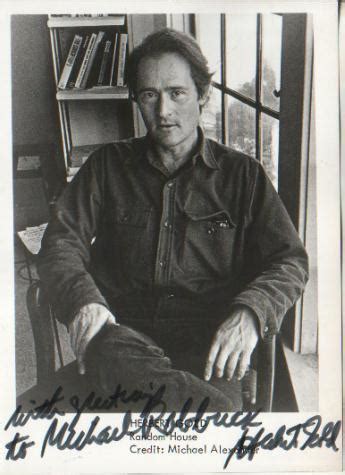A Quote by Dacia Maraini
Success is something you should never take into consideration: if you follow it it'll elude you. It's important to really love your work as a writer, to read loads to the point where you can recognise blindfolded, hearing them read, the writers of yesterday and today. It's important to write every day, for hours. To have faith in your imagination and let it wander.
Quote Topics
Blindfolded
Consideration
Day
Elude
Elude You
Every
Every Day
Faith
Follow
Have Faith
Hearing
Hours
Imagination
Important
Loads
Love
Love You
Love Your Work
Never
Never Take
Point
Read
Really
Recognise
Should
Something
Success
Success Is
Take
Them
Today
Wander
Work
Write
Writer
Writers
Yesterday
Yesterday And Today
Your
Related Quotes
I would give them (aspiring writers) the oldest advice in the craft: Read and write. Read a lot. Read new authors and established ones, read people whose work is in the same vein as yours and those whose genre is totally different. You've heard of chain-smokers. Writers, especially beginners, need to be chain-readers. And lastly, write every day. Write about things that get under your skin and keep you up at night.
You will achieve grand dream, a day at a time, so set goals for each day - not long and difficult projects, but chores that will take you, step by step, toward your rainbow. Write them down, if you must, but limit your list so that you won't have to drag today's undone matters into tomorrow. Remember that you cannot build your pyramid in twenty-four hours. Be patient. Never allow your day to become so cluttered that you neglect your most important goal - to do the best you can, enjoy this day, and rest satisfied with what you have accomplished.
Writer's block — so what? Write something bad. Just throw it in the trash can when you're done, you're always improving. That kind of writing is like doing a bunch of push-ups. Every individual push-up is not the important thing. On Tuesday you're going to think, "Is it really important that I do it today?" No, but the collective impact is. If you write every day, you will improve.
Read a lot. But read as a writer, to see how other writers are doing it. And make your knowledge of literature in English as deep and broad as you can. In workshops, writers are often told to read what is being written now, but if that is all you read, you are limiting yourself. You need to get a good overall sense of English literary history, so you can write out of that knowledge.
It's not possible to advise a young writer because every young writer is so different. You might say, "Read," but a writer can read too much and be paralyzed. Or, "Don't read, don't think, just write," and the result could be a mountain of drivel. If you're going to be a writer you'll probably take a lot of wrong turns and then one day just end up writing something you have to write, then getting it better and better just because you want it to be better, and even when you get old and think, "There must be something else people do," you won't be able to quit.
Writers are great lovers. They fall in love with other writers. That's how they learn to write. They take on a writer, read everything by him or her, read it over again until they understand how the writer moves, pauses, and sees. That's what being a lover is: stepping out of yourself, stepping into someone else's skin.
For me writing is a long, hard, painful process, but it is addictive, a pleasure that I seek out actively. My advice to young writers is this: Read a lot. Read to find out what past writers have done. Then write about what you know. Write about your school, your class, about your teachers, your family. That's what I did. Each writer must find his or her own kind of voice. Finally, you have to keep on writing.
I always ask young writers, 'Are you certain you want to be a writer? If you're absolutely sure, then do it.' If you really want to write, writing has to take precedence over everything else, except for taking care of your loved ones. It has to be more important than any possession, more important than fame. We hear about just a few writers who get famous, but most of them don't. It's got to mean more than that.
You go out into the world, you read everything you can read, you imitate the things you love, and you learn how hard it is to do. Eventually, you learn your own vision of the world, you learn your own voice and how to hear it, and you learn to write your own work. Writers today have as many opportunities as my generation did, but they don't see the examples as clearly as we did.
I try to set an intent every morning and take time to think about whatever I hope to achieve that day. I've learned that there's never going to be enough time to do anything. It's never going to be a perfect day, and I'm at a point in my life where my children are more important than work. Work is still important to me though, and I love what I do.
As soon as I start to write I'm very aware, I'm trying to be aware that a reader just might well pick up this poem, a stranger. So when I'm writing - and I think that this is important for all writers - I'm trying to be a writer and a reader back and forth. I write two lines or three lines. I will immediately stop and turn into a reader instead of a writer, and I'll read those lines as if I had never seen them before and as if I had never written them.






































